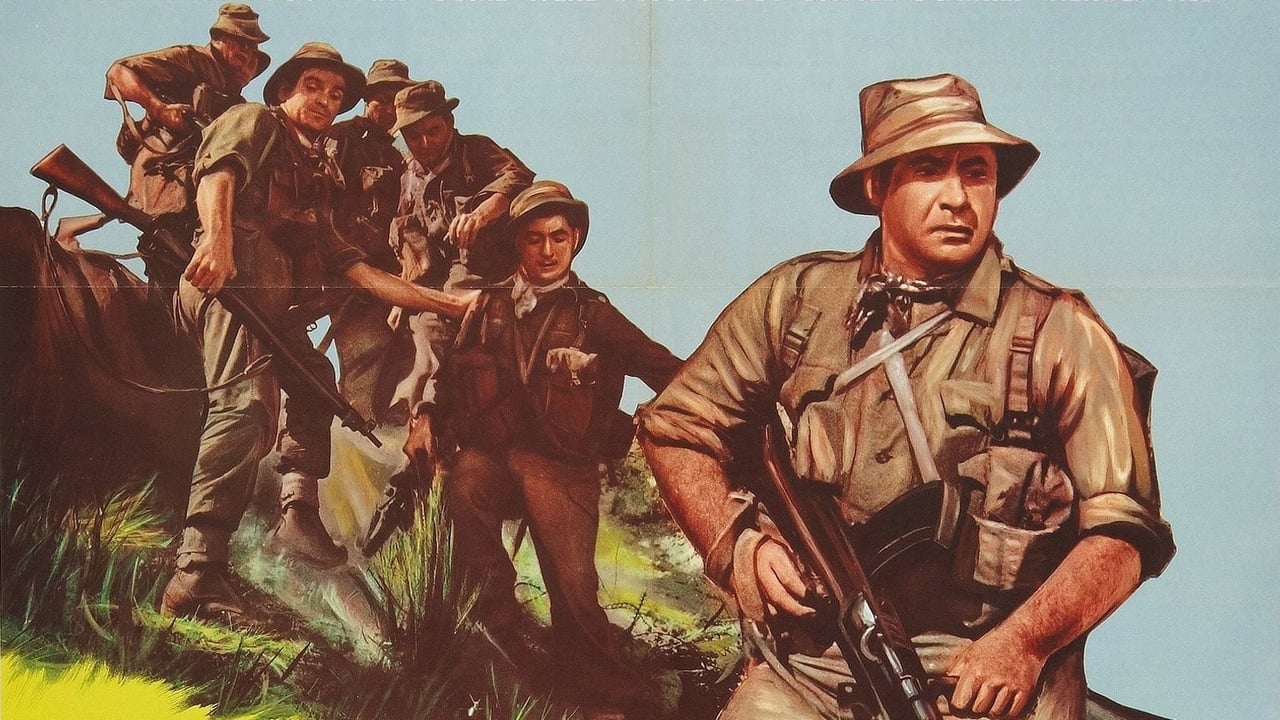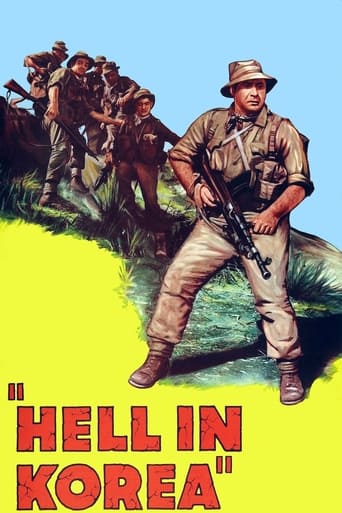

It's a small film but great in its making. The overwhelming credit of it is its absolutely perfect almost naturalistic realism, filmed in Korea and taking part of all the hardships of the soldiers at very close quarters. You get to know each of the soldiers individually, and MANY of them make unforgettable impressions. More of a curiosity is the presence of a very young Michael Caine among them as the youngest and the only blond one. He isn't noticed much and isn't seen much, but he is actually in it; while also Robert Shaw makes a very early and very palpable presence. The main characters though are Harry Andrews as stalwart and dominating in his imposing stature as ever, and Stanley Baker as the toughest and hardest of them. You don't like him, but in the end you must wonder if he wasn't right after all, while of course there is also the martyr, all lost and making his situation constantly more awkward in succeeding in doing everything wrong. The settings are also quite impressing with the Buddhist monastery as a refuge, like a Korean Alamo for a last stand, but here there are actually some survivors; while the greatest quality of the film is the indivdual close-up attention given to everyone of these forgotten heros.
... View MoreThe Korean war seems to have posed a bit of a problem with film makers . It wasn`t untill Vietnam that screenwriters and directors tried to profound statements on the nature of conflict and wear their anti war sentiments on their sleeves. To all intents and purposes you could rewrite any Korean war film script without any problem . Indeed you could change the place names and you`d have the exact same story , and that`s the problem with A HILL IN KOREA , it could be set during the North African campaign of 1941 or the Burma campaign of 1942 or the Italian campaign of 1944 and it`d be the exact same film. The only telling difference is if it`d been set during the Second World War it would have starred John Mills.It`s the casting of this film that makes it memorable, we have early roles for stalwarts of British cinema in the 60s and 70s: George Baker , Harry Andrews, Stanley Baker and Percy Herbert . And very early appearances by Robert Shaw , Stephen Boyd and Michael Caine ( Caine actually being an UN soldier in the Korean war ) who would all make it big in Hollywood. Sadly that`s the only memorable aspect on this film about " The forgotten war " . Forgotten that is except for the people who survived it
... View MoreStalwart little "Sunday Afternoon" war film with all the right ingredients - excellent cast of British character actors with requisite mix of seasoned pro's (Andrews, Landis, Maddern) and young up & comers (Boyd, Shaw, Caine), simple but gripping plot with salty "it's-a-dog's-life-in-the-army-but-orders-is-orders" dialogue, well staged action scenes, "friendly" US planes bombing British troops etc etc. Well worth an hour or so of your time.
... View MoreIt's 1951, and the Allies are on the retreat from the Yalu, with massive Chinese forces pursuing them south. A small unit of British troops is sent to reconnoitre a Korean village, and gets caught by two advancing Chinese battalions.For all the formulaic treatment of soldiers maintaining a chirpy stoicism in adverse combat conditions, this film does have a certain gritty realism. George Baker as the rookie lieutenant burdened by command, and Harry Andrews as the tough old sergeant, are first-class. Don't blink, or you'll miss a very young Michael Caine as Private Lockyer, lamenting the death of Corporal Ryker (Stanley Baker).The film works as a simple narrative of men under fire, but it certainly has some shortcomings. The narration which launches events may save the time and effort of explaining the plot, but would it not have been better for this information to emerge naturally out of the drama? When the hut explodes, there is a very obvious jump-cut. During the interval needed to get the actor out of the danger area, someone jolted the camera! Would the Chinese soldiers, even with their advantage in limitless canon-fodder, attack so recklessly across open, flat ground? At one point, close-ups are inserted to enhance the human reactions of the soldiers, but the trouble is, the lighting conditions do not match those of the master shot. Once the British soldiers retreat to the temple on the hill, the whole proceedings become totally studio-bound, with Shepperton fibreglass passing for buddhist architecture. The air strike relies too heavily on monotonously-repeated library footage of American planes. When the ending comes, it is a surprise in the wrong sense - the resolution is unconvincing, almost as if the film-makers didn't know how to extricate the soldiers. Surely a few bombs wouldn't clear the Chinese away for miles around?Ronald Lewis plays Wyatt, the misfit who didn't want to be a soldier and who gets everything wrong. This character is needed in one sense, because there has to be some internal tension within the British camp, but Wyatt is not well done. His apostasy is overly-dramatic, and his immolation utterly unbelievable. This attempt to inject gaudy emotion into a basically stiff-upper-lip story just doesn't come off.Verdict - Interesting 1956 British 'take' on recent war which ultimately succeeds, despite its flaws.
... View More